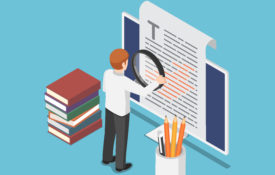-
Your Performance Feedback Doesn’t Work—Here’s How To Fix It
The ability to provide effective and credible performance feedback is a critical skill for supervisors, managers and leaders. Feedback delivered effectively helps employees elevate their performance, develop new skills, and achieve success for themselves and their organizations. But what if the way we typically approach feedback has been wrong? What if managers are focusing on the wrong part of the performance conversation? Does the way we deliver feedback help or hinder an employee’s motivation to improve? A recent research paper, The Future of Feedback: Motivating Performance Improvement through Future-focused Feedback, by Dr. Jackie Gnepp, President of Humanly Possible, Inc., and Dr.
-

Your In-laws’ History of Drinking Problems Could Lead to Alcohol Issues of Your Own
A new study finds marriage to a spouse who grew up exposed to parental alcohol misuse increases a person’s likelihood of developing a drinking problem. [August 20, 2020] Visit Page
-

Peer Review: A Practice that Sustains Science
Experts in the peer review process and journal editors share their knowledge about the process and advice about how to create meaningful reviews. Visit Page
-

New Content From Perspectives on Psychological Science
A sample of articles on training learning strategies, experience vividness and forms of consciousness, boredom and self-control, driverless vehicles and dilemmas, and the effects of childhood adversity. Visit Page
-
Coronavirus Turmoil Raises Depression Risks in Young Adults
“A number of kids are expressing that these are supposed to be the best years—high school and college—the most free years,” says Anne Marie Albano, a professor of medical psychology in psychiatry at Columbia University Irving Medical Center in New York. “The possibility that Covid is going to completely change this period of their life, and they won’t ever get it back, is overwhelming for a lot of them,” she says.
-

New Research in Psychological Science
A sample of research on automation and attitudes toward immigration, aging and memory decline, recognizing faces in everyday objects, the effect of pollution on unethical behavior, motor simulation, impulsivity and psychopathology, and discrimination and stereotypes. Visit Page

